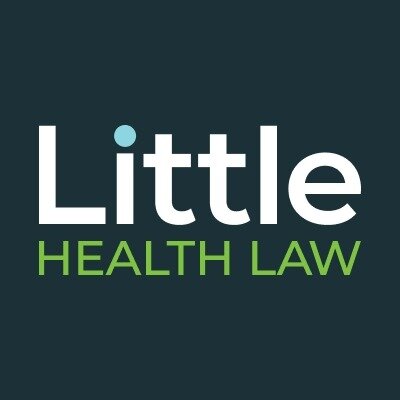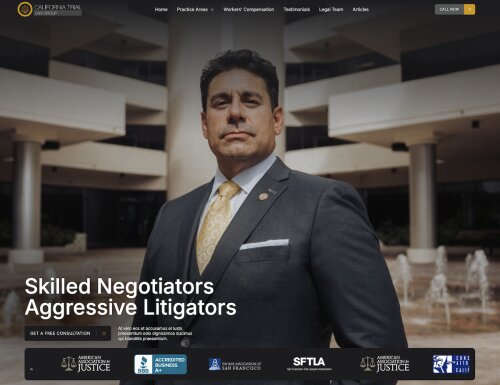Best Antitrust Litigation Lawyers in Georgia
Share your needs with us, get contacted by law firms.
Free. Takes 2 min.
Or refine your search by selecting a city:
List of the best lawyers in Georgia, United States
About Antitrust Litigation Law in Georgia, United States
Antitrust litigation in Georgia deals with legal disputes that arise from unfair business practices, such as price fixing, monopolies, and market allocation that hinder fair competition. While antitrust laws are primarily federally regulated under statutes like the Sherman Act, Clayton Act, and Federal Trade Commission Act, the state of Georgia enforces its own statutes and works in conjunction with federal authorities. These laws aim to promote competition, protect consumers, and prevent businesses from engaging in conduct that restrains trade within Georgia or impacts commerce affecting residents and businesses in the state.
Why You May Need a Lawyer
You may require the assistance of an antitrust litigation lawyer in Georgia for several reasons. Common scenarios include:
- If your business is accused of participating in anti-competitive activities such as collusion, exclusive dealing agreements, or price fixing.
- If you believe a competitor is engaging in unfair or illegal business practices that harm your company or market position.
- If you are involved in a merger or acquisition and need to ensure the transaction complies with antitrust laws.
- If you are a consumer or another business harmed by what you believe is anti-competitive behavior in the marketplace.
- If you have been contacted by regulatory agencies, such as the Department of Justice or Federal Trade Commission, regarding a potential antitrust investigation.
An experienced attorney can help you navigate the complexities of antitrust litigation and protect your rights and interests during negotiations, investigations, and in court.
Local Laws Overview
Antitrust litigation in Georgia operates under both federal and state statutes. While the majority of antitrust enforcement comes from federal authorities, Georgia statutes also prohibit unfair trade practices and seek to preserve competition within the state. The Georgia Fair Business Practices Act and the Georgia Uniform Deceptive Trade Practices Act are relevant in consumer protection and can intersect with antitrust issues. The state's Attorney General has authority to bring action against businesses that engage in unlawful monopolization, restraint of trade, or deceptive practices that harm consumers or stifle competition. Additionally, private parties have the right to bring lawsuits for damages if they are victims of antitrust violations.
Key aspects include:
- Coordination between state and federal authorities on enforcement
- Remedies include injunctive relief, monetary damages, and sometimes punitive damages
- Specific statutes of limitations for filing claims (typically four years, but varies by case type)
- Class actions may be brought in certain situations where multiple parties are affected
Frequently Asked Questions
What is antitrust litigation?
Antitrust litigation involves legal action related to wrongdoing in the marketplace, such as illegal agreements between businesses to fix prices, restrict trade, or establish monopolies that harm competition and consumers.
Which federal laws govern antitrust issues in Georgia?
The major federal laws are the Sherman Antitrust Act, Clayton Act, and Federal Trade Commission Act. These laws are enforced by the US Department of Justice and Federal Trade Commission, and also apply in Georgia.
Does Georgia have its own antitrust laws?
Yes. Georgia has statutes such as the Georgia Fair Business Practices Act and Georgia Fair Competition Act which address anti-competitive conduct and deceptive business practices within the state.
Can individuals or businesses file private antitrust lawsuits in Georgia?
Yes. Both individuals and businesses can bring private lawsuits in state or federal court if they have been harmed by anti-competitive conduct.
What are common examples of antitrust violations?
Examples include price fixing, bid rigging, market allocation, exclusive dealing, tying arrangements, and attempts to monopolize a market.
What remedies are available in antitrust litigation?
Remedies may include monetary damages (sometimes treble damages), injunctive relief to stop harmful practices, and in some cases punitive damages.
How long do I have to file an antitrust lawsuit in Georgia?
Typically, you have four years from the time the violation occurred to file a lawsuit, but the time period can vary based on specific circumstances and the type of claim.
What happens during an antitrust investigation?
Regulatory authorities might conduct interviews, demand business records, and review contracts and communications. Businesses or individuals under investigation should consult legal counsel immediately.
Can antitrust violations lead to criminal charges?
Yes. Some antitrust violations, such as price fixing, can result in criminal prosecution, fines, and even imprisonment in addition to civil liability.
Do I need a lawyer for an antitrust case?
Antitrust law is complex, involving both state and federal regulations and significant legal consequences. It is highly recommended to consult an experienced attorney for representation and guidance.
Additional Resources
If you need more information or wish to file a complaint, the following resources can be helpful:
- Georgia Attorney General Consumer Protection Division
- United States Department of Justice Antitrust Division
- Federal Trade Commission (FTC)
- Georgia Bar Association - Find a Lawyer
- Local law libraries and legal aid organizations in Georgia
Next Steps
If you believe you may have an antitrust claim or need legal help navigating an investigation or lawsuit in Georgia, consider these steps:
- Gather and organize all relevant documentation, including contracts, correspondence, and business records.
- Consult an experienced attorney specializing in antitrust law as soon as possible to assess your situation and discuss possible legal strategies.
- Contact the Georgia Attorney General’s office or relevant federal agencies if you wish to report suspected antitrust violations.
- Be mindful of deadlines for filing claims, as statutes of limitations may affect your ability to pursue legal action.
- Stay informed about both your rights and obligations under antitrust law to avoid potential pitfalls and protect your interests.
Antitrust litigation can significantly affect your business or personal finances, so taking prompt and informed action with qualified legal assistance is crucial.
Lawzana helps you find the best lawyers and law firms in Georgia through a curated and pre-screened list of qualified legal professionals. Our platform offers rankings and detailed profiles of attorneys and law firms, allowing you to compare based on practice areas, including Antitrust Litigation, experience, and client feedback.
Each profile includes a description of the firm's areas of practice, client reviews, team members and partners, year of establishment, spoken languages, office locations, contact information, social media presence, and any published articles or resources. Most firms on our platform speak English and are experienced in both local and international legal matters.
Get a quote from top-rated law firms in Georgia, United States — quickly, securely, and without unnecessary hassle.
Disclaimer:
The information provided on this page is for general informational purposes only and does not constitute legal advice. While we strive to ensure the accuracy and relevance of the content, legal information may change over time, and interpretations of the law can vary. You should always consult with a qualified legal professional for advice specific to your situation.
We disclaim all liability for actions taken or not taken based on the content of this page. If you believe any information is incorrect or outdated, please contact us, and we will review and update it where appropriate.
Browse antitrust litigation law firms by city in Georgia
Refine your search by selecting a city.














